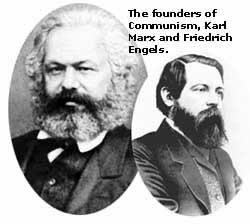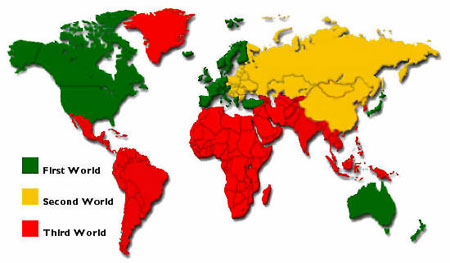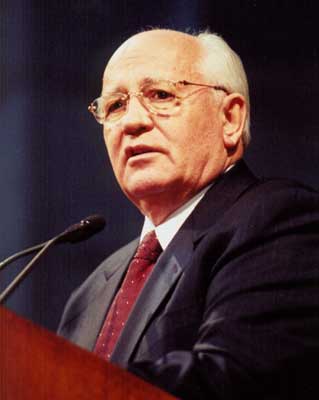|
Communism takes place many times in history, in various circumstances and time periods. The first of which was the Spartacus slave revolt in Rome. Also in the fifth century Mazdak movement, several monastic communities/religious orders in the Medieval Christian Church, Thomas More in his treaties, Utopia (1516), through the Diggers during the seventeenth century, and during the French Revolution, it came up as a political doctrine.
 Communism emerged from the socialist movement of the 19th century Europe. When the Industrial Revolution came along, socialists blamed capitalism and democracy for the proletariat's (a class made up of factory workers workings under dangerous conditions) hardships. The most "famous" of them all were Karl Marx, and Friedrich Engels. In 1848, they popularized the term communism in their well-known pamphlet, the Communist Manifesto. At first communism began with Marxism. The first major Marxist in Russia was Georgi Rlekhanov. He believed that Russia still had a long while until society would be prepared for Proloteria Revolution, and with tsarism, a socialist leader and later, a communist society. Communism emerged from the socialist movement of the 19th century Europe. When the Industrial Revolution came along, socialists blamed capitalism and democracy for the proletariat's (a class made up of factory workers workings under dangerous conditions) hardships. The most "famous" of them all were Karl Marx, and Friedrich Engels. In 1848, they popularized the term communism in their well-known pamphlet, the Communist Manifesto. At first communism began with Marxism. The first major Marxist in Russia was Georgi Rlekhanov. He believed that Russia still had a long while until society would be prepared for Proloteria Revolution, and with tsarism, a socialist leader and later, a communist society.
In the 1917 October Revolution in Russia, state power was overthrown by the Bolsheviks. Because of their, there was much debate over the practicality of the Marxist movement. The Bolshevik's success in gaining power in government and support of the people was based on slogans such as: "All power to the Soviets" and “peace, bread, and land." These slogans showed how the public of Russia wanted the government to back out of World War I, how the poorest classes demanded land reformation, and that there was much more support for the Soviets. In 1917 Bolsheviks renamed their group calling themselves Communists, popularizing the term as well as “socialism.” During the Russian Civil War (1918-22) the Bolsheviks imposed a policy of war that put all factories/railroads under government control. Lenin declared the New Economic Policy (NEP), after the Kronstadt rebellion in 1921. The NEP gave small business the ability to reopen and make profit while the government still controlled the large industries. This prevented the economy from collapsing. When Josef Stalin obtained party leadership, and passed the intro to the Five Year Plan, he ended the NEP.
After World War II, Communism started becoming powerful in Eastern Europe and the Communist Party of China established the Peoples Republic of China (1949). Many other countries in the east adopted a pro-Communist government at some point in time. North Korea, Laos, Vietnam, Cuba, Cambodia, Mozambique, and Angola were a few. By the early 1980's, almost 1/3 of the worlds population lived in lands governed by Communist powers, however most of them never unified into a single political entity.
 Communist powers like USSR and China became industrial and technological powers, due to the arms and space race, and other military conflicts which challenged capitalist powers. Due to its victory in World War II, the Soviet Army occupied nations in Eastern Europe and Eastern Asia. Communism gradually spread to many more countries. Communism grew stronger as many countries became influenced by the USSR. Governments in Bulgaria, Poland, Czechoslovakia, Hungary, and Eastern Germany are the few examples of governments that modeled after Soviet Communism. Communist powers like USSR and China became industrial and technological powers, due to the arms and space race, and other military conflicts which challenged capitalist powers. Due to its victory in World War II, the Soviet Army occupied nations in Eastern Europe and Eastern Asia. Communism gradually spread to many more countries. Communism grew stronger as many countries became influenced by the USSR. Governments in Bulgaria, Poland, Czechoslovakia, Hungary, and Eastern Germany are the few examples of governments that modeled after Soviet Communism.
Except for Russia’s and China’s involvement in War World II, communism has always been seen as an opposing force, a threat to Western Democracy, and capitalism of the 20th century. During the Cold War, this rivalry reached its peak as more and more countries began to accept communism. Due to this communist peak, both the USSR and US developed powerful weapons causing fear among the world. Another reason people feared communism, was because it threatened their freedoms.Many religious people feared communism would take their right to freedom of religion, due to the fact that communist leaders generally implied that religion is "a tool used by society to pacify its members.” Near the start of the Cold war, Wisconsin's senator, Joseph McCarthy accused 205 Americans working in State Department of being Communists. Known as the Red Scare, the fear of being accused of communism grew. If someone was accused, that person generally became excluded and ignored, and they also lost many priveleges.

When Mikhail Gorbachev became leader of the Soviet Union in 1985, he relaxed central control. Poland, Bulgaria, Hungary, Czechoslovakia, East Germany, and Romania all stopped Communist government by 1990. And by 1991, the Soviet union itself disappeared. By the 21st century, states controlled by Communist parties under a single-party system stayed politically important in many other countries.
|